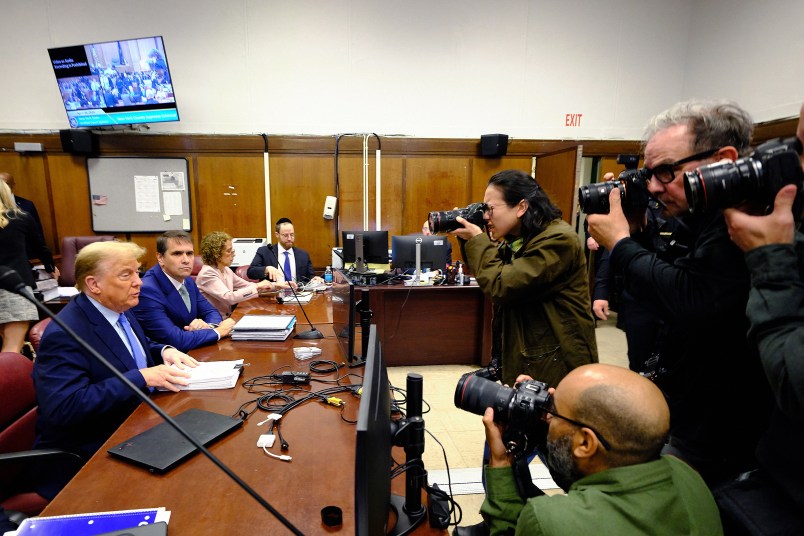WASHINGTON (AP) — The two-star Air Force general fired last fall as commander of the nuclear missile corps because of alcohol-fueled misbehavior will retire in June at a lower rank, the Air Force said Thursday.
Maj. Gen. Michael Carey was commander of 20th Air Force, with responsibility for the entire fleet of 450 Minuteman 3 nuclear missiles, when he was fired last October following an official investigation of his actions while leading a U.S. government delegation to a nuclear security exercise in Russia last July.
Carey will retire as a brigadier general, one rank below major general. He did not immediately respond to an Associated Press request for comment.
Investigators determined that Carey had engaged in “inappropriate behavior,” including heavy drinking, rudeness to his hosts and associating with “suspect” women, according to the investigative report made public last December.
After the Russia trip, a member of his delegation lodged a complaint about Carey’s behavior. That person, described as a female staff member in the Office of the Secretary of Defense, asserted to investigators that on the delegation’s first night in Moscow, Carey was drinking and speaking loudly in a hotel lounge about how he was “saving the world” and that his forces suffer from low morale.
The investigators said Carey, whom they interviewed at length on Sept. 4, seemed to forget substantial portions of what happened in Russia. The report also said that at times he clammed up or gave testimony at odds with others in the delegation.
After being relieved of command, Carey was allowed to remain in the Air Force; he has been serving as a staff officer at Air Force Space Command, where he has no responsibility for nuclear weapons. An Air Force spokesman, Maj. Mathew Hasson, said Carey’s final duty day is Friday and he will retire June 1.
By retiring one notch below his current rank Carey will lose a substantial amount in retirement pay. An officer with Carey’s length of service is entitled to about 75 percent of his active-duty base pay, which would mean approximately $111,000 a year in retirement pay for a one-star, or about $18,000 a year less than for a two-star retiree.
The decision to not allow him to retire as a major general was made by Air Force Secretary Deborah Lee James, who said on March 27 that she would make the final call based on what the military terms an “officer grade determination,” which comes into play when an officer’s conduct raises questions about the quality of his service.
Carey’s firing was one of several setbacks for the nuclear force over the past year. The Associated Press has documented serious security lapses and complaints of low morale and “rot” within the intercontinental ballistic missile, or ICBM, force, as well as an independent assessment of “burnout” among a sampling of nuclear missile launch officers and junior security forces.
Also, the three-star Navy admiral who was deputy commander of U.S. Strategic Command, which has overall responsibility for the U.S. nuclear weapons arsenal, was fired last fall after being accused of using counterfeit casino gambling chips. That officer, Timothy Giardina, was reduced in rank to two-star admiral and is now serving in a Navy staff position in Washington. The Navy is expected to determine soon whether he will be further disciplined.
Shortly after the Carey and Giardina accusations became public last fall, Defense Secretary Chuck Hagel expressed public concern about leadership lapses in the nuclear force. And in January, after learning of illegal drug and exam-cheating investigations in the Air Force nuclear missile corps, Hagel launched two major investigations to search for root causes of the problems.
Last November, the Air Force chief of staff, Gen. Mark Welsh, disclosed that as a result of the Carey episode, the Air Force would take a closer look at the background of candidates for general officer-level nuclear command jobs.
Carey joined the Air Force as an enlisted airman in 1978 and became an officer in 1983. He has been serving in the rank of major general since November 2011.
Carey had been trying to address morale problems within the nuclear missile corps prior to his firing. Last summer he discussed with Welsh a plan that would have made a number of changes in working conditions in the ICBM force, including protecting people’s time off.
___
Follow Robert Burns on Twitter at http://www.twitter.com/robertburnsAP
Copyright 2014 The Associated Press. All rights reserved. This material may not be published, broadcast, rewritten or redistributed.








